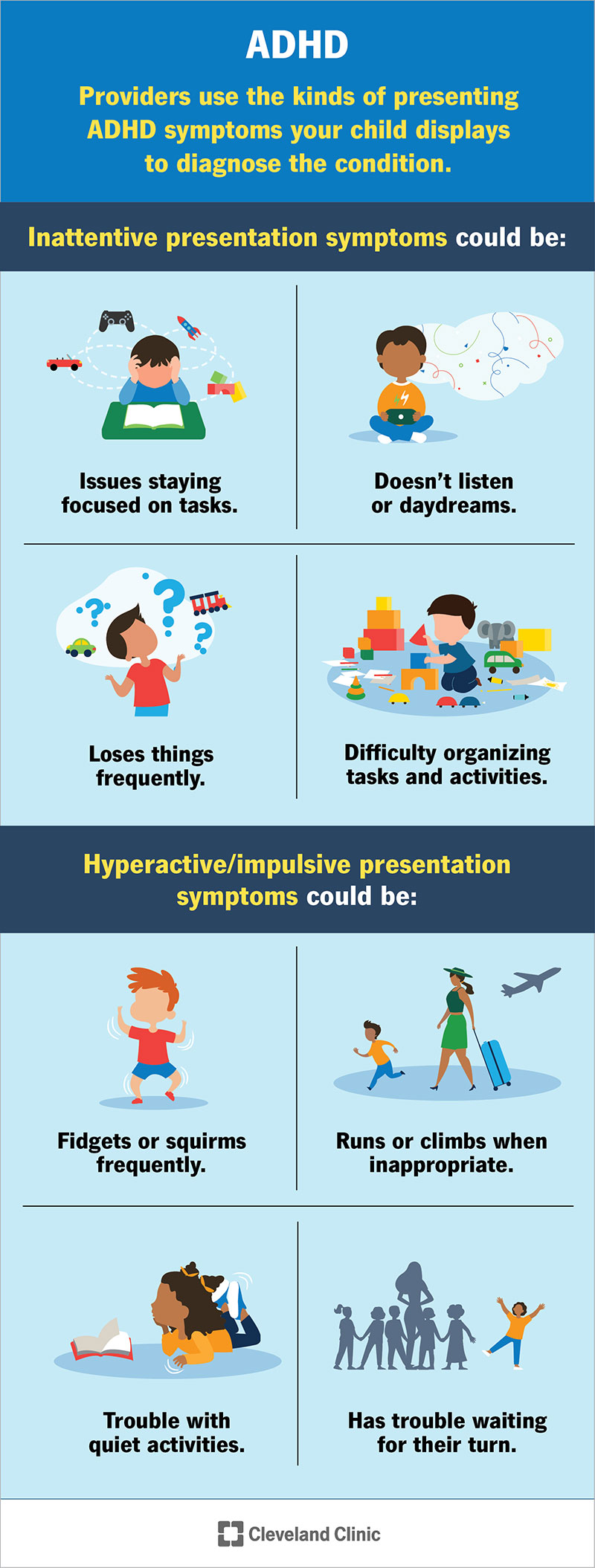The Advantages of Individualized ADHD Therapy Prepare For Better End Results
The implementation of tailored ADHD treatment plans has actually emerged as a crucial strategy in boosting healing outcomes for individuals influenced by this condition. By recognizing the special manifestations of ADHD in each individual, these personalized interventions advertise better involvement and inspiration, inevitably leading to more efficient coping strategies. This tailored technique not just addresses scholastic and job-related challenges however additionally fosters improved social relationships and general high quality of life. Nonetheless, the true degree of these advantages raises crucial questions about the particular parts that add to lasting success and how they can be optimized for varied populations.
Recognizing ADHD Variability
Although Attention-Deficit/Hyperactivity Disorder (ADHD) is frequently regarded as a singular condition, its manifestations can vary dramatically among people. Gender distinctions additionally play a role, as males are extra often detected with ADHD and often show a lot more obvious signs and symptoms, whereas females may provide with much less noticeable inattentiveness.
Furthermore, individuals with ADHD may experience a range of emotional and behavioral difficulties, such as anxiousness or opposite defiance, that can make complex medical diagnosis and therapy. The communication of these variables can bring about diverse experiences of ADHD, requiring a nuanced understanding of the condition. It is additionally worth keeping in mind that ADHD can offer in a different way throughout numerous cultural contexts, influencing exactly how signs and symptoms are identified and addressed. This understanding highlights the importance of recognizing ADHD as a multifaceted condition, which calls for customized methods to treatment that think about the unique needs and experiences of each individual.
Key Elements of Personalization
Individualized ADHD treatment plans are grounded in a number of essential components that make certain efficient management of the problem. Initially, an extensive assessment is important, including standardized rating ranges, interviews, and behavior observations. This comprehensive evaluation enables clinicians to comprehend the individual's special symptoms, toughness, and challenges.
2nd, the involvement of several stakeholders, including parents, instructors, and the individual, adds to an alternative sight of the person's demands. Collaboration cultivates a supportive atmosphere that can adjust to the individual's context and way of living.
Third, therapy plans need to be flexible and versatile, enabling modifications based upon ongoing comments and the person's evolving demands. This adaptability makes it possible for the integration of different healing methods, such as behavior treatments, psychoeducation, and medication monitoring.
Additionally, cultural and contextual aspects must be taken into consideration. Acknowledging the person's background, worths, and choices ensures that the therapy is relevant and respectful.
Finally, regular follow-ups and evaluations are vital to check progression and make necessary adjustments. By concentrating on these vital components, customized ADHD treatment strategies can considerably enhance the efficiency of treatments, resulting in improved results for individuals with ADHD.
Improved Interaction and Motivation
To efficiently advertise enhanced engagement and motivation in people with ADHD, it is important to integrate approaches that resonate with their interests and staminas. Individualized therapy strategies that straighten with a person's interests can cause raised engagement in healing tasks, promoting a sense of possession and enthusiasm for the procedure.
Utilizing interactive and innovative strategies can additionally dramatically enhance inspiration. Incorporating gamification components or real-world applications of abilities can make tasks extra attractive and relevant. This not just captures focus however also strengthens discovering through delightful experiences.
Additionally, setting attainable and meaningful objectives tailored to the person can reinforce inspiration. you can try here When individuals see their progression in the direction of directly significant purposes, they are most likely to stay engaged. Regular comments and acknowledgment of accomplishments can better endure inspiration, creating a favorable responses loop that urges continued effort.
Last but not least, fostering a helpful setting where individuals really feel understood and valued can dramatically impact their interaction degrees. When therapy plans are established collaboratively, including input from the person, they are much more most likely to really feel purchased their trip, ultimately resulting in boosted results in managing ADHD.
Improved Coping Techniques
Creating boosted coping techniques is vital for people with ADHD, as it equips them with efficient tools to browse day-to-day obstacles. A customized treatment plan Read More Here enables for the recognition of specific coping mechanisms tailored to the individual's distinct requirements and scenarios - ADHD treatment. Strategies such as mindfulness, time monitoring skills, and organizational techniques can be integrated into daily regimens, promoting a sense of control and decreasing stress and anxiety
Mindfulness methods, consisting of meditation and deep-breathing workouts, help individuals with ADHD concentrate their attention and regulate their emotions. Time administration methods, such as utilizing timers or breaking tasks into smaller sized, convenient actions, can alleviate sensations of overwhelm. Furthermore, organizational tools like planners and lists can boost effectiveness and responsibility.
Long-lasting Positive Outcomes
Applying personalized ADHD therapy strategies can cause considerable long-term favorable outcomes for people. These customized techniques, which take into consideration distinct signs, preferences, and life conditions, promote much more reliable administration of ADHD symptoms in time. By concentrating on the details requirements of the person, these plans improve adherence to therapy protocols and foster higher interaction in therapeutic activities.

Moreover, tailored treatment strategies can substantially minimize the risk of comorbid problems, such as anxiety and clinical depression, which are commonly connected with ADHD. Early treatment and constant assistance aid individuals build durability and coping techniques, advertising overall psychological health and wellness.
Inevitably, the lasting positive end results of customized ADHD therapy plans not only enhance the lifestyle for individuals however additionally add to their general health and success in various life domains. This all natural approach highlights the value of individualized care in handling ADHD successfully.
Conclusion
